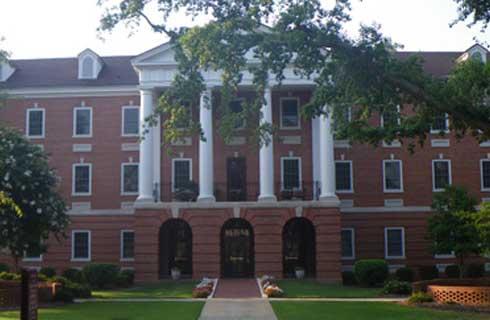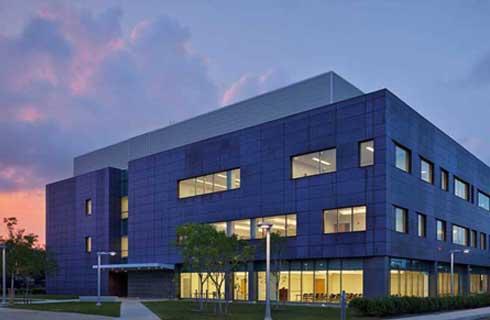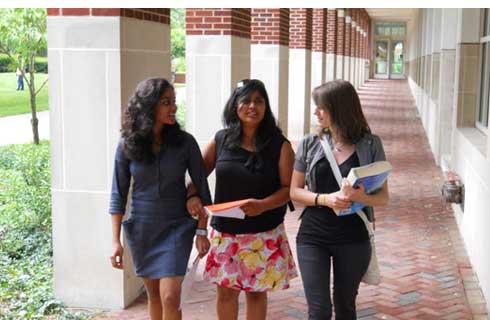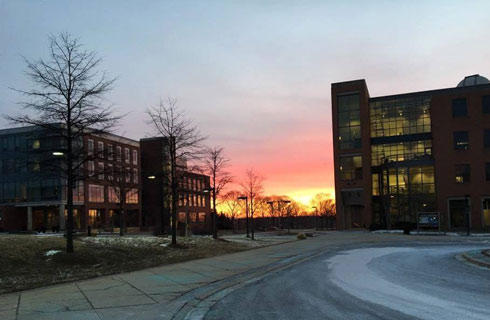理学士(荣誉)物理学与医学物理学
BSc (Hons) Physics with Medical Physics

学历文凭
Bachelor Degree with Honours

专业院系
Department of Physics and Astronomy

开学时间

课程时长

课程学费

国际学生入学条件
IDP—雅思考试联合主办方

雅思考试总分
6.5
- 雅思总分:6.5
- 托福网考总分:88
- 托福笔试总分:160
- 其他语言考试:Pearson Test of English Academic (PTE Academic or PTE Academic UKVI) - Overall score of 61 with a minimum of 56 in each component
CRICOS代码: F350
申请截止日期: 请与IDP联系 以获取详细信息。
课程简介
This course focuses on the physics that keeps us alive: from the fluid mechanics that keeps the blood flowing in our veins, to the forces acting on our bones and tissues. You’ll also learn about medical techniques and technologies, such as radiotherapy, ultrasound scanning and MRI machines.<br>Our medical physics course has a special focus on the physics that keeps us alive. You’ll learn about the medical techniques and technologies developed by physicists and used in the NHS, such as radiotherapy, ultrasound scanning and MRI machines.<br><br>At the start of your course, you’ll cover the essential physics behind everything else you’ll study: heat, motion, electricity, magnetism and quantum mechanics. You will also start to study the human body as a physical machine, and how electronics can be used to model biological systems. You’ll learn through lectures and practical labs so you won’t be learning about abstract topics in isolation. You’ll run experiments using the equipment in our modern laboratories to help you understand how important theories apply to the real world.<br>You’ll explore essential physics in even more depth in your second year. You’ll also continue to specialise in medical physics, with modules on the tissues of the human body, medical imaging and biomedical instrumentation. In programming classes you can learn skills that are key to medical physics and valuable in many graduate careers, from data science to computer game design.<br><br>Optional placement year, Study abroad
相关申请
 预科
预科 奖学金
奖学金 实习机会
实习机会 在校学习
在校学习 跨境学习
跨境学习 校园授课-线上开始
校园授课-线上开始 在线/远程学习
在线/远程学习
开学时间&学费
学费信息仅供参考,请与IDP联系以获取详细信息
| 开学时间 | 时长 | 学费 | 地点 |
|---|---|---|---|
| 暂无 | 暂无 | 暂无 | 暂无 |
学校排名

世界排名106
数据源:
泰晤士高等教育世界大学排名
关于谢菲尔德大学

谢菲尔德大学是一个一流的研究型大学,在全球享有盛誉。该校是著名的罗素集团成员,名列全球第92位、英国第15位(2026年QS世界大学排名)。来自各种背景的学生将在谢菲尔德享受世界一流的教育。谢菲尔德有50多万人口,是个蓬勃发展的文化和工业中心。谢菲尔德是英国第四大城市,位于英国中心地带,是学生游览英国和欧洲的理想基地。从谢菲尔德乘火车两个小时便可到达伦敦,一小时可到达曼彻斯特。谢菲尔德大学拥有一个庞大的国际学生群体,因优质的教学和世界一流的研究而闻名。研究人员热衷于解决当今世界所面临的最大挑战。该校的尖端研究成果不仅影响着英国及全球的政策,对该校一系列学科的教学也发挥着作用。谢菲尔德大学有来自世界各地150个国家的3万多名学生。该校因紧密团结、温馨友好的校园社区而闻名,其学生会是公认的英国最好的学生会之一,在''2025年英国全国学生调查''中名列英国榜首。学生会提供各种俱乐部和社团、社交活动以及志愿活动机会,让学生获得更好的求学体验。谢菲尔德大学也因为学生提供极好的求学生活而世界闻名。
本校相关课程

工学士(荣誉)软件工程
学历文凭
Undergraduate Masters
开学日期
课程费用总额


工学学士(荣誉)软件工程
学历文凭
Bachelor Degree with Honours
开学日期
课程费用总额


社会学学士(荣誉)学位
学历文凭
Bachelor Degree with Honours
开学日期
课程费用总额


理学学士(荣誉)学位
学历文凭
Bachelor Degree with Honours
开学日期
课程费用总额


文学士(荣誉)俄罗斯和政治
学历文凭
Bachelor Degree with Honours
开学日期
课程费用总额


政治与社会学(荣誉)文学士学位
学历文凭
Bachelor Degree with Honours
开学日期
课程费用总额

其他相关课程

理学学士(物理学)荣誉
 伊迪斯科文大学
伊迪斯科文大学学历文凭
Bachelor Degree with Honours
开学日期
课程费用总额


理学学士(荣誉学位)-物理学
 伍伦贡大学
伍伦贡大学泰晤士高等教育世界大学排名:247
学历文凭
Bachelor Degree with Honours
开学日期
课程费用总额


哲学硕士(物理)
 科廷大学
科廷大学泰晤士高等教育世界大学排名:256
学历文凭
Masters Degree (Research)
开学日期
课程费用总额


哲学博士(物理)
 纽卡斯尔大学
纽卡斯尔大学学历文凭
Ph.D.
开学日期
课程费用总额


理学学士(高性能计算物理)(荣誉学位)
 阿德莱德大学
阿德莱德大学学历文凭
Bachelor Degree with Honours
开学日期
课程费用总额


理学学士(空间科学和天体物理学)
 阿德莱德大学
阿德莱德大学学历文凭
Bachelor Degree
开学日期
课程费用总额










 英国
英国